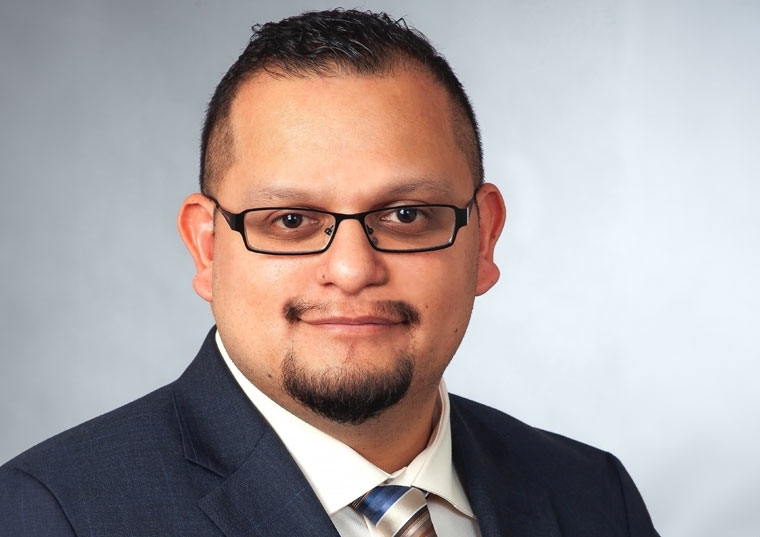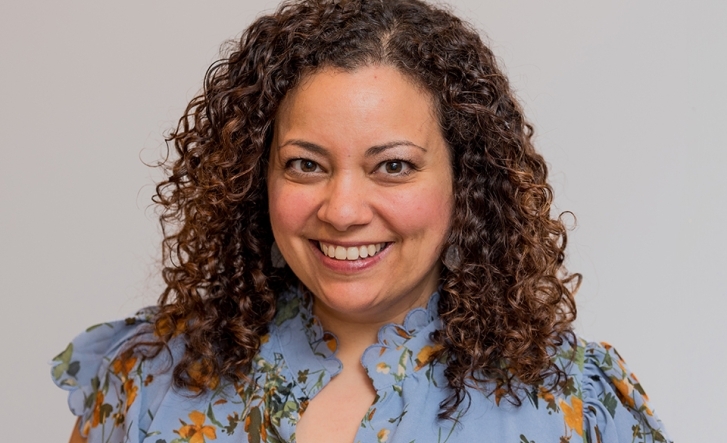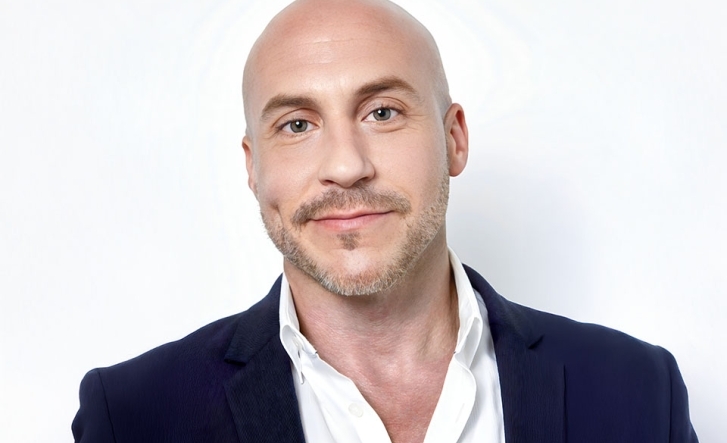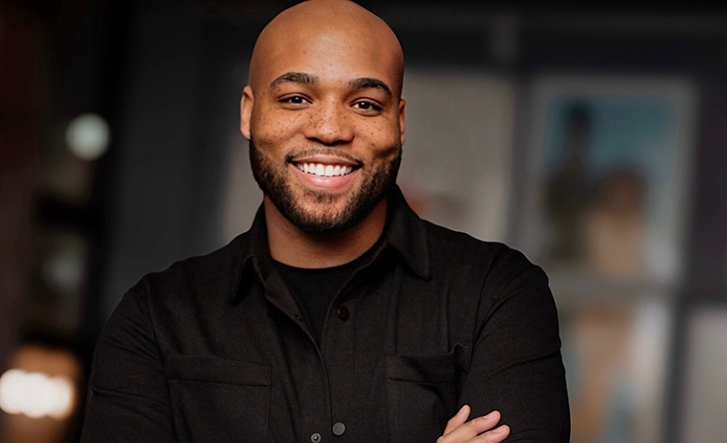Life and Career of Alumnus Devoted to Service and Crisis Management
A native of Queens, NY, and a St. John’s Preparatory School graduate Rudy Murillo ’14CPS, ’16G was aware of St. John’s University as a young person. Still he followed a circuitous—but no less fulfilling—path to get there.

“I like to be dependable,” Mr. Murillo stressed. “In the business that I’m in, people reach out in their worst times and I want to be able to come through. I don’t want to be another hurdle people have to pass through. Someone once asked how they would describe me, and another person said, ‘Rudy is the calmest person in the room.’”
Mr. Murillo serves as Vice President of Emergency Management and Services Department for the New York City Housing Authority (NYCHA), the largest public housing authority in North America.
College, Mr. Murillo recalled, was the expected path but one that he initially did not want to take. “I was young. I wanted to see the world,” he explained.
By his junior year of high school, he decided to enlist in the United States Marine Corps, a decision cemented by the terrorist attacks on September 11, 2001, which occurred during his senior year.
Mr. Murillo’s decision to join the Marines was predicated on the fact it is not for everyone. “Only a few make it,” he stressed. “That’s how I am—I seek a challenge. I want to take the least traveled path. I want to be different from the rest.”
Always forward thinking, Mr. Murillo chose data communications, a specialty would provide a backup plan when eventually re-entering the civilian life. “Right after boot camp, I started learning network communications, learning how to design, implement, and troubleshoot a network. The good thing about the military is they let you play with million-dollar equipment at 18 years old,” he laughed.
Mr. Murillo’s favorite duty in the Marines was working as a Marine Security Guard at various US embassies worldwide. He served one-year terms at three embassies, including Bangladesh, Mexico, and Russia. “That’s where I found my niche,” he stressed.
Mr. Murillo was intimately involved in crafting response plans for the embassies in the event of an incident. “We were charged with protecting Americans and government property,” he said, and that further informed his future career decisions.
Mr. Murillo’s final assignment was as a platoon sergeant for a communications division in Hawaii, and he did his combat deployments with them. “I had the best of both worlds: I had this data communications knowledge provided by the Marines, but I was with an infantry battalion.”
After his honorable discharge, Mr. Murillo searched for a career path that would effectively utilize the skill sets he developed as a Marine. “I was lucky enough to get a job with the New York City Office of Emergency Management and continue that work as a civilian,” Mr. Murillo recalled.
“I needed a degree that would put a bow on the professional experience,” he explained, and that led him back to St. John’s, where he went to school in the evening to earn his undergraduate degree in Homeland Security in just under two years. Mr. Murillo earned approximately 30 credits during his military experience, “and I am so grateful to my advisers at St. John’s for that.”
Mr. Murillo took a semester off after earning his bachelor’s degree. He returned for his master’s degree in Homeland Security and Criminal Justice Leadership, which he completed in just over a year. He worked full time while earning his two degrees.
“That’s the good and bad thing about emergency management. It’s a 24–7 job,” he laughed. “I can always work a different shift or work a modified schedule—that was the saving grace. I was able to juggle both. Also, multitasking is a needed skill.”
Mr. Murillo firmly believes his role is not simply about responding to emergencies as they happen but being able to give his colleagues the tools and assistance to prepare effectively for whatever they may encounter. “I want to help colleagues solve problems before they become bigger issues. If we solve it now, it never becomes my problem down the road.”
New York City’s infrastructure requires billions of dollars to address, Mr. Murillo noted. “NYCHA has said we need about 70 billion dollars to make ourselves whole,” he explained.
Much of his oversight includes emergency repairs. “A lot of our solutions are temporary fixes,” but a critical need requires quick redress. “It could be New Year’s Eve at 11:30 p.m., and residents need water.”
The COVID-19 pandemic was an example of the often unprecedented situations to which Mr. Murillo must respond. “We had to look at what was essential for the agency. What actions and services must we provide, and how do we keep doing it? In the beginning, no one truly understood its impacts.”
He added, “We changed the way we did business. For example, we changed our workflow and how we handled our work tickets.”
Despite everything, Mr. Murillo realizes bureaucracy exists. “There is red tape, but I believe it’s my job to push that envelope to see how far we can move to get the job done. Sometimes we have to review the procedures and rewrite them. They are meant to help us, not limit us from getting the work done.”
NYCHA has more than 100 departments, and he and his team work with them collaboratively. “Each person has their own mission and service they must provide to our residents,” he explained. “My role, as a VP, is really to be that spearhead that drives our mission forward. I advocate for my department to ensure we get the essential funding, resources and support needed in order for us to accomplish our tasks. I also serve as a consultant to my peers and as a resource they can turn to when they have an issue.”
“I like to be dependable,” Mr. Murillo stressed. “In the business that I’m in, people reach out in their worst times and I want to be able to come through. I don’t want to be another hurdle people have to pass through. Someone once asked how they would describe me, and another person said, ‘Rudy is the calmest person in the room.’”




